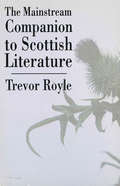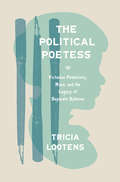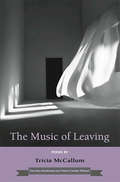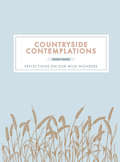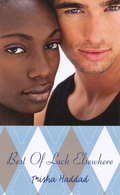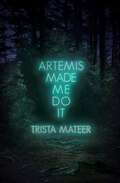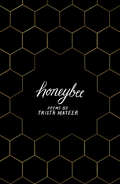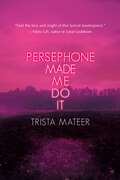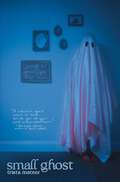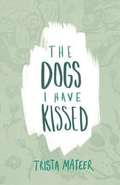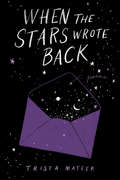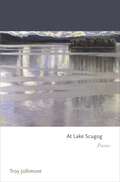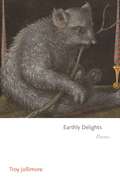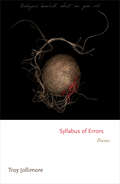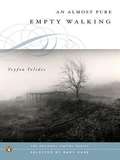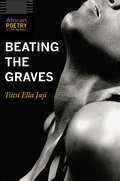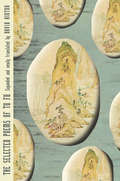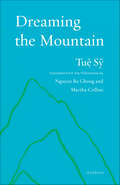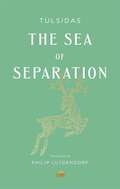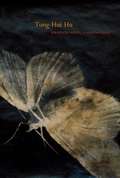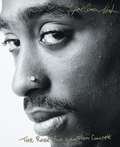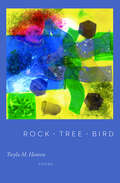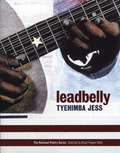- Table View
- List View
The Mainstream Companion to Scottish Literature
by Trevor RoyleThe Mainstream Companion to Scottish Literature is the most comprehensive reference guide to Scotland's literature, covering a period from the earliest times to the early 1990s. It includes over 600 essays on the lives and works of the principal poets, novelists, dramatists critics and men and women of letters who have written in English, Scots or Gaelic. Thus, as well as such major writers as Robert Henryson, William Dunbar, Gavin Douglas, Allan Ramsay, Robert Fergusson, Robert Burns, Walter Scott, Robert Louis Stevenson and Hugh MacDiarmid, the Companion also lists many minor writers whose work might otherwise have been overlooked in any survey of Scottish literature.Also included here are entries on the lives of other more peripheral writers such as historians, philosophers, diarists and divines whose work has made a contribution to Scottish letters.Other essays range over such general subjects as the principal work of major writers, literary movements, historical events, the world of printing and publishing, folklore, journalism, drama and Gaelic. A feature of the book is the inclusion of the bibliography of each writer and reference to the major critical works. This comprehensive guide is an essential tool for the serious student of Scottish literature as well as being an ideal guide and companion for the general reader.
The Political Poetess: Victorian Femininity, Race, and the Legacy of Separate Spheres
by Tricia LootensThe Political Poetess challenges familiar accounts of the figure of the nineteenth-century Poetess, offering new readings of Poetess performance and criticism. In performing the Poetry of Woman, the mythic Poetess has long staked her claims as a creature of “separate spheres”—one exempt from emerging readings of nineteenth-century women’s political poetics. Turning such assumptions on their heads, Tricia Lootens models a nineteenth-century domestic or private sphere whose imaginary, apolitical heart is also the heart of nation and empire, and, as revisionist histories increasingly attest, is traumatized and haunted by histories of slavery. Setting aside late Victorian attempts to forget the unfulfilled, sentimental promises of early antislavery victories, The Political Poetess restores Poetess performances like Julia Ward Howe’s “Battle Hymn of the Republic” and Emma Lazarus’s “The New Colossus” to view—and with them, the vitality of the Black Poetess within African-American public life. Crossing boundaries of nation, period, and discipline to “connect the dots” of Poetess performance, Lootens demonstrates how new histories and ways of reading position poetic texts by Felicia Dorothea Hemans, Elizabeth Barrett Browning, Dinah Mulock Craik, George Eliot, and Frances E. W. Harper as convergence points for larger engagements ranging from Germaine de Staël to G.W.F. Hegel, Virginia Woolf, Elizabeth Bishop, Alice Walker, and beyond.
The Music of Leaving: Poems
by Tricia McCallumThere is a music of leaving, as surely as there is that of arriving. And it is this distinct soulful music that we often hear, however faintly, in the background of our lives. McCallum’s poems are about elephants being traipsed through the Queens Midtown Tunnel, an unstable child’s slide, and roaming island dogs. About a visit to a family home before it is sold, a late night conversation in a plane above an ocean, and shrewd Irish falcons. About eloquent gravestones, da Vinci’s unfinished joke book, the elegant legs of a heron, and landing on the moon. About a jackknife dive at dusk, a young girl’s sleepover, and a memory instantly evoked by brushing against a stand of lavender. McCallum’s hope for her new book The Music of Leaving is that it delivers to her readers those “magical moments of understanding” that a good poem can.
Countryside Contemplations: Reflections on Our Wild Wonders
by Trigger'In the spring, at the end of the day, you should smell like dirt.' - Margaret Atwood. This beautifully packaged book offers a rare opportunity to slow down, step back and to receive the natural restorative power of nature through its beautiful, evocative passages and quotes inspired by the countryside. The contemplative words will transport you to a space of quiet reflection as you simply sit and be. 'Soon will the high Midsummer prompts come in Soon will the musk carnations break and swell Soon shall we have gold-dusted snapdragon Sweet-William with his homely cottage-smell And stocks in fragrant blow Roses that down the alleys shine afar And open, jasmine-muffled lattices'...Mathew Arnold, Thyrisis: A Monody to Commemorate the Author's Friend, Arthur Hugh Clough
Artemis Made Me Do It (Myth and Magick #2)
by Trista MateerBestselling and award-winning author Trista Mateer returns with another magical approach to self-care in her newest goddess-themed poetry collection, Artemis Made Me Do It. Using the framework of tarot and conversation, Mateer approaches myth through a witchcraft-inspired lens and uses it to explore timeless issues like burnout, survival, trauma, and the restorative power in taking control of your own lore. Artemis speaks to what is wild and untamed in all of us, and in this new collection, she asks for a moment of calm. This is the second book in the Myth & Magick series, which also includes Aphrodite Made Me Do It and Persephone Made Me Do It.
Honeybee: a story of letting go, by LGBT poet Trista Mateer
by Trista MateerYou will meet people in your lifetime who demand to have poems written about them. It's not something they say. It's something about their hands, the shape of their mouths, the way they look walking away from you.Honeybee is an honest take on walking away and still feeling like you were walked away from. It's about cutting love loose like a kite string and praying the wind has the decency to carry it away from you. It's an ode to the back and forth, the process of letting something go but not knowing where to put it down. Honeybee is putting it down. It's small town girls and plane tickets, a taste of tenderness and honey, the bandage on the bee sting. It's a reminder that you are not defined by the people you walk away from or the people who walk away from you. Consider Honeybee a memoir in verse, or at the very least, a story written by one of today's most confessional poets.
Persephone Made Me Do It (Myth and Magick #3)
by Trista MateerBestselling and Goodreads Choice Award-winning author Trista Mateer returns with another mythical approach to self-care in her newest poetry collection, Persephone Made Me Do It. Following her previous work in this series, Mateer weaves together mythology, tarot, poetry, and conversation to reveal a new side of a very old story. Alternating between the perspectives of poet and goddess, Persephone&’s lore is explored, related to modern issues, and ultimately reclaimed.&“You want to talk about duality? You want to talk about love? Let us speak instead of chaos.&” In this new collection of art and feminist verse from Trista Mateer, Persephone might have flowers in her hair—but she is out for blood. This is the third book in the Myth & Magick series, which also includes Aphrodite Made Me Do It and Artemis Made Me Do It.
Small Ghost
by Trista MateerSweet reassurance and validation for anyone feeling adrift—this collection of verse, illustrations, and photography is a poetic refuge far away from loneliness.A delicate blend of melancholy reflections and absurd hopefulness, Small Ghost explores the exhausting reality of struggling with mental health. Mateer&’s conversational style, infused with vulnerability and thoughtfulness, transforms mundane experiences into wistful musings. Panic attacks at the grocery store and days spent wasting away in bed are met with humor and care. Lauren Zaknoun&’s evocative photography and the poet&’s own illustrations add a whimsical, irreverent touch to the collection. With Small Ghost, Trista Mateer holds out a hand and offers solace to those who may feel otherwise isolated in their peculiarities.
The Dogs I Have Kissed
by Trista MateerWinner of the 2015 Goodreads Choice Award, The Dogs I Have Kissed is a collection of poetry about kissing the wrong people and sometimes just being the wrong person. It's a story about leaving until you learn how to stay. Known for her eponymous blog and her confessional style of writing, this is Trista Mateer's second collection of poetry.
When the Stars Wrote Back: Poems
by Trista MateerIn the vein of poetry collections like Milk and Honey and Light Filters In, this compilation of short, powerful poems from Instagram sensation Trista Mateer shines beauty and insight into relationships, love, growing up, and learning to cope. <P><P>This hardcover collection features completely new material, plus some fan favorites from Trista's account. Filled with colored original artwork from Jess Cruickshank, this powerful collection unpacks how to heal from trauma, explores love in many forms, and empowers you to love yourself and take up the space you deserve. <P><P>BIG BANG THEORY <br>what happens if we collide? <br>will it feel like atoms bursting? <br>will it burn like light? <br>will your hands feel the same as other people's hands? <br>will the whole world change if we touch? <br>do you want to find out?
At Lake Scugog: Poems (Princeton Series of Contemporary Poets #58)
by Troy JollimoreThis is an eagerly awaited collection of new poems from the author of Tom Thomson in Purgatory, which won the National Book Critics Circle Award and was hailed by the New York Times as a "snappy, entertaining book." A triumphant follow-up to that acclaimed debut, At Lake Scugog demonstrates why the San Francisco Chronicle has called Troy Jollimore "a new and exciting voice in American poetry." Jollimore is a professional philosopher, and in witty and profound ways his formally playful poems dramatize philosophical subjects--especially the individual's relation to the larger world, and the permeable, constantly shifting border between "inner" and "outer." For instance, the speaker of "The Solipsist," suspecting that the entire world "lives inside of your skull," wonders "why / God would make ear and eye / to face outward, not in." And Tom Thomson--a character who also appeared in Jollimore’s first book--finds himself journeying like an astronaut through the far reaches of the space that fills his head, an experience that prompts him to ask that a doorbell be installed "on the inside," so that he can warn the world before "intruding on’t."______ From At Lake Scugog:LOBSTERS Troy Jollimore ? tend to cluster in prime numbers, sub-oceanic bundles of bug consciousnesssubmerged in waking slumber, plunged in pitsof murk-black water. They have coalesced out of the pitch and grime and salt suspendedwithin that atmospheric gloom. Their skinis colorless below. But when exposedto air, they start to radiate bright green, then, soon, a siren red that wails: I’m dead.The meat inside, though, is as white as teeth,or the hard-boiled egg that comes to mindwhen one cracks that crisp shell and digs beneath. Caress the toothy claw-edge of its pincerand you will know the single, simple thoughtthat populates its mind. The lobster trap is eleganceitself: one moving part: the thing that’s caught.
Earthly Delights: Poems (Princeton Series of Contemporary Poets #158)
by Troy JollimoreFrom the winner of the National Book Critics Circle Award, a new collection of philosophical, elegiac, and wry meditations on film, painting, music, and poetry itselfEarthly Delights begins with an invocation to the muse and ends with the departure of Odysseus from Ithaca. In between, Troy Jollimore’s distinguished new collection ranges widely, with cinematic and adventurous poems that often concern artistic creation and its place in the world. A great many center on films, from Andrei Tarkovsky’s Nostalghia to Paul Thomas Anderson’s Boogie Nights. The title poem reflects on Hieronymus Bosch’s The Garden of Earthly Delights, while another is an elegy for Gord Downie, the lead singer and lyricist for the cult rock band The Tragically Hip. Other poems address various forms of political insanity, from the Kennedy assassination to today’s active shooter drills, and philosophical ideas, from Ralph Waldo Emerson’s musings on beauty to John D. Rockefeller’s thoughts on the relation between roses and capitalist ethics. The book’s longest poem, “American Beauty,” returns repeatedly to the film of that name, but ultimately becomes a meditation on the Western history of making and looking, and—like many of the book’s poems—an elegy for lost things.
Syllabus of Errors: Poems
by Troy Jollimore. . . we are fixed to perpetrate the species-- I meant perpetuate--as if our duty were coupled with our terror. As if beauty itself were but a syllabus of errors.Troy Jollimore's first collection of poems won the National Book Critics Circle Award, was hailed by the New York Times as "a snappy, entertaining book," and led the San Francisco Chronicle to call him "a new and exciting voice in American poetry." And his critically acclaimed second collection expanded his reputation for poems that often take a playful approach to philosophical issues. While the poems in Syllabus of Errors share recognizable concerns with those of Jollimore's first two books, readers will also find a voice that has grown more urgent, more vulnerable, and more sensitive to both the inevitability of tragedy and the possibility of renewal. Poems such as "Ache and Echo," "The Black-Capped Chickadees of Martha's Vineyard," and "When You Lift the Avocado to Your Mouth" explore loss, regret, and the nature of beauty, while the culminating long poem, "Vertigo," is an elegy for a lost friend as well as a fantasia on death, repetition, and transcendence (not to mention the poet's favorite Hitchcock film). Ingeniously organized into sections that act as reflections on six quotations about birdsong, these poems are themselves an answer to the question the poet asks in "On Birdsong": "What would we say to the cardinal or jay, / given wings that could mimic their velocities?"
Living Prayers, Poems and Poetry
by True E. ReadywriterThe author mingles poems, prayers and devotional thoughts.
An Almost Pure Empty Walking
by Tryfon TolidesIn his debut collection, chosen by Mary Karr as a winner of the 2005 National Poetry Series, Tryfon Tolides weaves together poems that speak of desire, loss, and small joys. Tolides was born in a tiny village in Greece and his work is rooted in the mountains and wind and the deep interior of that place; his poems express a longing and a searching for peace, for home, for beauty, for escape. These poems constitute a lament, whether they concern themselves with the difficulties of assimilation or the question of whether it is possible for people to live with one another in a spirit of true understanding. They prove that the physical and the metaphysical can share residence, can even be one and the same. .
Beating the Graves (African Poetry Book)
by Tsitsi Ella JajiThe poems in Tsitsi Ella Jaji’s Beating the Graves meditate on the meaning of living in diaspora, an experience increasingly common among contemporary Zimbabweans. Vivid evocations of the landscape of Zimbabwe filter critiques of contemporary political conditions and ecological challenges, veiled in the multiple meanings of poetic metaphor. Many poems explore the genre of praise poetry, which in Shona culture is a form of social currency for greeting elders and peers with a recitation of the characteristics of one’s clan. Others reflect on how diasporic life shapes family relations. The praise songs in this volume pay particular homage to the powerful women and gender-queer ancestors of the poet’s lineage and thought. Honoring influences ranging from Caribbean literature to classical music and engaging metaphors from rural Zimbabwe to the post-steel economy of Youngstown, Ohio, Jaji articulates her own ars poetica. These words revel in the utter ordinariness of living globally, of writing in the presence of all the languages of the world, at home everywhere, and never at rest.
The Selected Poems of Tu Fu: Expanded And Newly Translated By David Hinton
by Tu FuA new and substantially expanded version of Hinton’s landmark translation of Tu Fu, published on the thirtieth anniversary of that original edition A newly translated and substantially expanded version of Hinton’s landmark Tu Fu, published on the thirtieth anniversary of the original edition Tu Fu (712–770 C.E.) has for a millennium been widely considered the greatest poet in the Chinese tradition, and Hinton’s original translation played a key role in developing that reputation in America. Most of Tu Fu’s best poems were written in the last decade of his life, as an impoverished refugee fleeing the devastation of civil war. In the midst of these challenges, his always personal poems manage to combine a remarkable range of possibilities: elegant simplicity and great complexity, everyday life and grand historical drama, private philosophical depth and social engagement in a world consumed by war. Through it all, his is a wisdom that can only be called elemental, and his poems sound remarkably contemporary: Leaving the City It’s bone-bitter cold, and late, and falling frost traces my gaze all bottomless skies. Smoke trails out over distant salt mines. Snow-covered peaks slant shadows east. Armies haunt my homeland still, and war drums throb in this far-off place. A guest overnight here in this river city, I return again to shrieking crows, my old friends.
Dreaming the Mountain
by Tu? S?The North American debut of Tuệ Sỹ—poet, monk, scholar, dissident, and one of the great cultural figures of modern Vietnam—and a new bilingual edition to the Seedbank series.In addition to being a preeminent scholar of world philosophy and a Zen master, TuệSỹ is one of Vietnam’s most celebrated poets. He is a survivor of sixteen years of imprisonment and an eloquent witness to the tumult, tragedy, and resilience of his country over the last sixty years—and a full-length translation of his work into English is long overdue.Assembled and co-translated by Vietnamese poet and essayist Nguyen Ba Chung and acclaimed American poet Martha Collins, Dreaming the Mountain reflects a lifetime of creation, crisis, and commitment. With poems presented on facing pages in Vietnamese and English, this volume includes the early imagism of Tuệ Sỹ’s Zen studies as a scholar and critic, midlife work that represents his attempted retreat from the devastation of war and subsequent years of imprisonment, and late, elliptical poems that give intensely lyrical expression to a lifetime of profound experience. From the “fleeting dream of red blood at dusk” to the quiet determination of one who sets out to “repaint the dawn,” these poems reflect the journey of an artist who speaks for his country, who captures its darkness and its light.At once personal and universal, coolly observant and deeply compassionate, the poems of Tuệ Sỹ bring singular attention to a fleeting, painfully beautiful world.
Aawaz Ek Tik-Tik
by Tulsi MishrThe book indicates the emptiness in life in the poetess's life. Between the happiness and the sorrows the poetess searches the meaning of life. In the loneliness of life she finds that the beginning and end of life all converges in the sound of tik tik.
The Sea of Separation: A Translation from the Ramayana of Tulsidas (Murty Classical Library of India #volume 24)
by Tulsidas“This perceptive and accessible edition brings Tulsidas’s version [of the Ramayana], the most widely read across Northern India, to English-speaking audiences, giving readers a fresh glimpse into the tale’s impressive energy.”—Publishers WeeklyTulsidas’s Rāmcaritmānas, written in the sixteenth century in a literary dialect of classical Hindi, has become the most beloved retelling of the ancient Ramayana story across northern India. The revered masterpiece recounts the epic story of Ram’s exile and his journeys, and it is recited by millions of Hindus today.The Sea of Separation presents some of the poem’s most renowned episodes—Ram’s battles with demons, the kidnapping of his wife Sita by Ravana, his alliance with a troop of marvelous monkeys, and, finally, the god Hanuman’s heroic journey to the island city of Lanka to find and comfort Sita.This new translation into free verse conveys the passion and momentum of the inspired poet and storyteller.
Greenhouses, Lighthouses
by Tung-Hui Hu"Perplexity and wonder are integral parts of Tung-Hui Hu's poetry, which is as elegant as it is surprising."-Rain Taxi"This fresh and unexpected poet extends the lyric into the social space without losing any of song's intensity or mystery."-Mark Doty"Tung-Hui Hu works magic on the page."-Linda GregersonWeaving between the personal and cosmic I, Tung-Hui Hu's lyrics seek the "greenhouse"-a place of saturation, growth-as a poetic space to cultivate new modes through which our common language can once again illuminate and guide-"lighthouse." With minimalism and control, Greenhouses, Lighthouses draws subtly from photography, cinematography, and history to create haunting and memorable connections.From "A Gust of Wind":There is so much he wants to ask hisstrange new wife: how many loversshe has had, American or Provolone,and why sometimes, listening to her,he can hear the sound of a radiatorbreathing steam in a cold room.But it feels ridiculous to doubt her,so he finds a patch of grass in the open fieldand speaks to it, bending down andburring his words through the blades . . . Tung-Hui Hu, author of three books of poetry, earned his MFA in creative writing from the University of Michigan and a PhD in film from University of California Berkeley. He teaches at the University of Michigan and lives in Ann Arbor, Michigan.
The Rose that Grew from Concrete
by Tupac ShakurTupac Shakur's most intimate and honest thoughts were uncovered only after his death with the instant classic The Rose That Grew from Concrete. For the first time in paperback, this collection of deeply personal poetry is a mirror into the legendary artist's enigmatic world and its many contradictions. Written in his own hand from the time he was nineteen, these seventy-two poems embrace his spirit, his energy -- and his ultimate message of hope.
Rock Tree Bird
by Twyla M. Hansen2018 Nebraska Book Award This collection of poems by the State Poet of Nebraska covers significant emotional territory while remaining firmly grounded in the landscape. From memories of the isolation and beauty of growing up on a farm, to a burgeoning awareness as a teenager of the economic and cultural forces waged against family farming, to coming to terms with the legacies of her parents after their passing, and, finally, arriving at an appreciation of nature and the environment wherever and whenever she finds it, Twyla M. Hansen offers poems that are alternately sad, sweet, funny, moving, human, and humane.
Leadbelly
by Tyehimba Jess"It is exhilarating to be invited into a world so large and muscular, so rooted in history, a world where so much is at stake. "--Brigit Pegeen Kelly, National Poetry Series judge A biography in poems, leadbelly examines the life and times of the legendary blues musician from a variety of intimate perspectives and using a range of innovative poetic forms. A collage of song, culture, and circumstance, alive and speaking. Tyehimba Jess' numerous awards include fellowships from the NEA and the Fine Arts Work Center in Provincetown. A native of Detroit, he is a proud alumnus of the Chicago Green Mill Slam teams and Cave Canem. His first nonfiction book isAfrican American Pride: Celebrating our Achievements, Contributions, and Enduring Legacy (Citadel Press, 2003).
